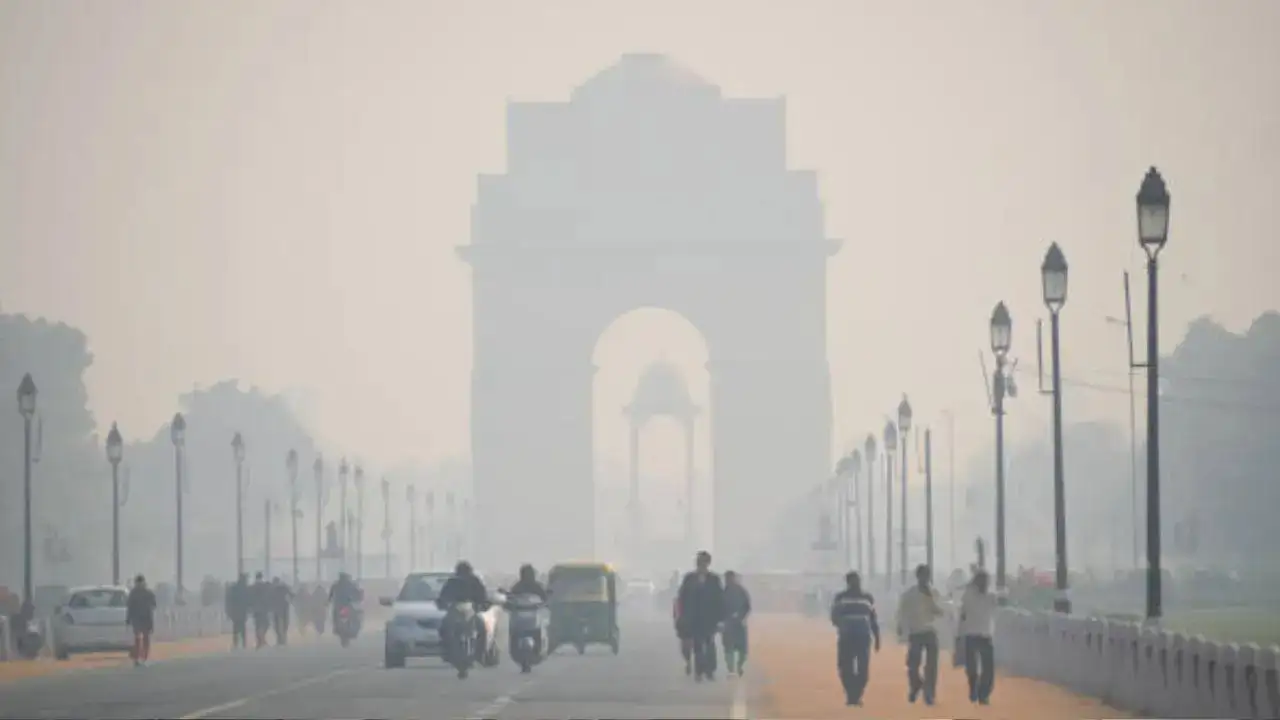
Did You Realise The AQI Getting Worse? Here’s What’s Happening And How To Stay Safe (Image Credits: iStock/ Image For Representation)
If you woke up with a burning sensation in your eyes or an itchy throat, you are not alone. Thousands of residents across the Delhi-NCR region reported breathing discomfort, irritation in the eyes, and coughing—symptoms triggered by a sudden and sharp deterioration in the city’s air quality.
The air quality in the national capital dipped dramatically overnight, with the Air Quality Index (AQI) reaching alarming levels. At 10 AM, the AQI stood at 249, categorised as “poor,” according to data from SAFAR (System of Air Quality and Weather Forecasting and Research). However, in many areas of Delhi-NCR, real-time AQI readings crossed the 500 mark, entering the “hazardous” zone.
According to officials from the India Meteorological Department (IMD), the drastic change in air quality was caused by dust-raising winds that swept through the region around 10 PM on Wednesday night. These strong gusts stirred up large amounts of particulate matter, especially PM10, leading to a spike in pollution levels.
His colleague, IMD scientist Krishna Mishra, noted that by 9 AM, visibility had slightly improved to 1,500 metres with westerly winds at 10 km/hr, and said that further gradual improvement is expected as the day progresses.
Despite the improving trend, the current air quality is hazardous, especially for children, the elderly, and those with pre-existing respiratory conditions. Even the healthy ones are at risk of developing short-term symptoms like eye irritation, sore throat, and shortness of breath.
Urgent Safety Tips You Need to Follow:
1. Avoid Outdoor Activities: When air quality dips to hazardous levels, outdoor activities like walking, jogging, or exercising can do more harm than good. This can worsen symptoms such as coughing, wheezing, or shortness of breath.
2. Wear an N95 Mask: Not all masks offer protection against air pollution. Cloth and surgical masks do little to filter out fine particulate matter (PM2.5 and PM10), which are the most harmful components of smog. Certified N95 or N99 masks are designed to filter out at least 95 per cent of airborne particles.
3. Keep Windows Closed: To prevent outdoor polluted air from entering your home, keep doors and windows shut—especially during peak pollution hours (early morning and late evening). Avoid indoor pollution sources like incense sticks, candles, or frying food, as these can worsen indoor air quality.
4. Stay Hydrated: Polluted air can dry out the mucous membranes in your nose, throat, and lungs, making you more vulnerable to irritation and infections. Drinking plenty of water keeps your body hydrated and helps flush out toxins.
5. Use Saline Nasal Spray: Saline nasal sprays can be a gentle yet effective way to clear pollutants, allergens, and irritants from your nasal passages. This can relieve congestion, reduce inflammation, and soothe dry or itchy nasal tissues. It’s especially helpful for children and those suffering from allergic rhinitis or sinus problems during high-pollution days.
6. Limit Use of Cars: Vehicular emissions significantly contribute to air pollution. On high AQI days, try to minimize the use of personal vehicles. Carpooling, using public transport, or opting for remote work (if possible) can reduce your carbon footprint.
7. Seek Medical Help if Symptoms Persist: If you or your family members experience prolonged coughing, chest tightness, wheezing, fatigue, or breathlessness, don’t ignore it. These could be signs of respiratory distress or worsening asthma.
8. Take Steam: Inhaling steam can provide immediate relief from the respiratory discomfort caused by polluted air. It helps in loosening mucus, soothing irritated nasal passages, and opening up the airways. This is especially beneficial for people experiencing congestion, dry throat, or a burning sensation in the nose and eyes.
9. Use Air Purifiers: Air purifiers are essential during such high pollution days, especially for sensitive groups like the elderly, children, and pregnant women. These devices help filter out fine particulate matter (PM2.5 and PM10) and other airborne toxins present indoors. Ensure the purifier has a HEPA filter and place it in the room where elderly, children and pregnant ladies spend most of their time.
10. Herbal Teas: Drinking warm herbal teas such as tulsi (holy basil), ginger, mulethi (licorice), or turmeric tea can help soothe the throat and reduce inflammation triggered by inhaling pollutants. These teas can support your immune system, ease coughing, and relieve irritation in the respiratory tract.
Get Latest News Live on Times Now along with Breaking News and Top Headlines from Health and around the world.
